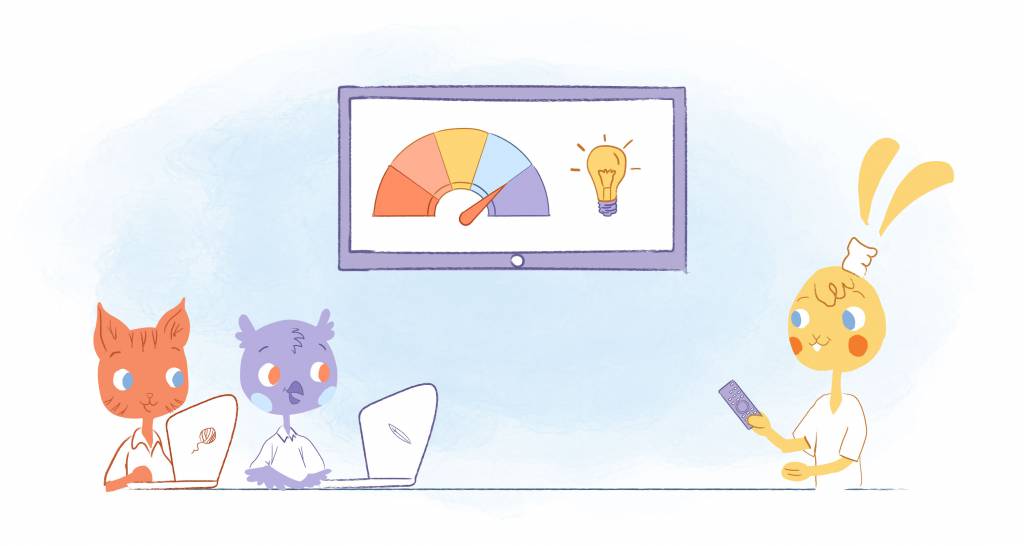

If you want to become productive then you need to be committed to planning and focus. It also wouldn’t hurt to develop these 15 daily habits that the most productive people share.
1. They have a consistent morning routine.
Productive people like Oprah, Elon Musk, Jeff Bezos, and Arianna Huffington have morning routines. The misconception, however, is that this means that they’re awake and ready to work at 5am.
A morning routine is a consistent set of activities and order that works for you that helps set the stage for a productive day. For example, this could be waking-up at 6am, slamming down a glass of water, exercising, eating breakfast, showering, reading, and checking your emails. For others that routine could vary. The point is to make sure that it’s consistent and gets you ready to tackle the rest of the day.
2. Prioritize tasks.
Productive people know the difference between important and urgent tasks. Important tasks are those that contribute to a long-term mission or goal, while urgent tasks are time sensitive and need to be taken care of ASAP. The problem is that we often spend our days on urgent days.
To prevent this from happening, block out the first couple hours of your day to important your most important task. When completed you can go back and work on those urgent tasks.
If you need some help determine which tasks to complete now, schedule it for later, delegate it,, or forget about it entirely you can use the Eisenhower Matrix.
3. They maximize down time.
We all need time away from work. It helps us recharge our batteries and refocus. However, productive people spend their down time wisely.
Instead of vegging out and watching a show on Netflix during their break, they’ll spend that time reading, meditating, or learning something new.
Personally, every afternoon I go for walk and listen to a podcast. Not only am I getting some exercise, I’m also spending time outside and consuming new information. When I return to work I feel rejuvenated and ready to take on the rest of the day.
4. They never touch things twice.
“Productive people never put anything in a holding pattern, because touching things twice is a huge time-waster,” writes Travis Bradberry.
Let’s say you just remembered to ask a client a question regarding an upcoming project. Instead of putting that email off until later in the afternoon send it out now. If it’s something that you don’t need to act on then either delegate or delete it.
5. Work at times when they’re productive.
I’m sure you’ve seen countless articles proclaiming that if you want to be successful you have to wake-up at some ridiculous hour, like at 4am. While there are benefits to being an early riser, not everyone is a morning person. Some people are night owls. This means that they’re not going to be as productive bright and early.
Find out when you’re most productive and schedule your most important work around that. So if you’re most productive between 9am and noon, then that’s when you would want to focus on your most important task.
6. They carry a Notebook.
Successful and productive people like Bill Gates, Sheryl Sandberg, and Richard Branson are known for carrying around notebooks. This way they can jot down all of their thoughts and ideas.
“I can’t tell you where I’d be if I hadn’t had a pen on hand to write down my ideas as soon as they came to me,” Branson wrote in a blog post.
For Sandberg, she uses a notebook as a type of daily planner. She writes her to-do lists down and rips out the pages when completed. It’s a simple way for her to stay motivated and on track.
Additionally, writing down your thoughts and ideas is a great way to free your mind. I don’t about you, but I can’t focus when I have a million thoughts running through my head. Writing them down alleviates this problem so that I can focus on the task at hand.
7. Surround themselves with smart people.
Jim Rohn has one of the greatest quotes ever, “You’re the average of the five people you spend the most time with.”
That’s why you don’t see ambitious and successful individual spending too much time with slackers. They realize that in order to more driven, motivated, and productive they surround themselves with those who are smart, creative, and productive.
8. They limit technological distractions.
“If I looked at email and Twitter and texts [during the day], I don’t think I would ever give my full attention to anything. You cannot be insightful if you’re deluged with information,” Cathy Engelbert, CEO of Deloitte, tells Fast Company.
Engelbert adds, “We’re all drowning in data. We all need moments of recovery. For me, that includes not going right to my phone when I wake up in the morning. I got on a plane about six months ago, and I forgot my phone. For two days, I didn’t have my phone, and nobody died.”
Her final words of advice? “Technology should help you do your job, not control your job.”
For me, there are specific times throughout the day when I either turn off my phone, put it on airplane mode, or use a tool like Freedom to block distracting apps and websites.
I also block out specific times throughout the day to check my emails and phone. This way I can focus on work, while also not being completely off-the-grid.
9. They look at their days in minutes, not hours.
Most calendars are divided into 30-or-60 minute increments. Productive people don’t stick with that generic template. Instead they break their calendar up into even smaller increments.
According to Grant Cardone, author of The 10X Rule: The Only Difference Between Success and Failure, Alan Greenspan, the former chairman of the Federal Reserve, divided his day into 15-minute increments, which Cardone incorporated into his schedule.
Cardone explains that when you divide up an hour, you multiply your available time. “[Greenspan] didn’t let white space on that calendar, he knew white space was a problem because–white space, nothing in the 15 minutes–was a waste of time,” he says in a video.
10. They don’t multitask.
Multitasking doesn’t work. In fact, multitasking slows you down because your brain is switching tasks and focus. As a result, it takes you even longer to complete tasks.
If you want to get more done you need to focus on one task at a time. You can use something like the Pomodoro Technique to help keep you single task.
11. They take care of themselves.
Science has found that regular cardiovascular exercise boosts your memory, attention span, and creativity. It also lowers stress and improves your mood. This means you’ll be happier at at work and at home.
Additionally, productive people eat smart by consuming superfoods that can boost brain power. This includes nuts, berries, whole grains, fish, avocado, and leafy greens like kale.
12. They say “No” to almost everything.
Warren Buffett famously once said, “The difference between successful people and very successful people is that very successful people say no to almost everything.”
Derek Sivers, founder of CDBaby, echoes similar advice. “When deciding whether to do something, if you feel anything less than ‘Wow! That would be amazing. Absolutely. Hell yeah!’ — then say ‘no.’”
Remember, there’s only 1,440 minutes in a day. So don’t be so willingly to give away too much of your time to anyone else.
13. They follow the Pareto principle.
“The Pareto Principle is also known as the 80/20-Rule. It suggests that 80 percent of the results come from 20 percent of the efforts,” explains Renzo Costarella in a previous Calendar article.
“It’s your job to identify which 20 percent of your efforts are producing your best results. Do your best to hone in on these specific efforts and scale them the best you can.”
14. They’re friends with time.
Really productive people, or RPPs as Marie Forleo has dubbed them, are friends with time in that “they don’t look at time as the enemy.”
When you make time the enemy you’ll end-up struggling with both productivity and motivation. The reason?. Whenever something is considered the “enemy” it’s just going to end-up being a source of pain and frustration for you.
Instead of considering time your nemesis, make it your ally. You can start by eliminating bad habits like multitasking and procrastination, as well as practicing:
- Mindfulness. This helps you focus on one thing at a time.
- Acceptance. Concentrating only on what is in your control.
- Authenticity. This encourages self-management because it helps you decide what to do and when to do it.
15. They use automation tools and productivity apps.
Finally, productive individuals seek out and use tools and apps for that automate repetitive tasks. For example, Calendar eliminates those back-and-forth communications when setting-up an appointment. It automates the process by giving others access to your calendar so that they can select a date and time. Once they do the event is added automatically to everyone’s calendar.
They also use a variety of productivity apps to manage their teams, social media accounts, travel, content creation, and even to help them focus and get more done.











John Hall
John Hall is the co-founder of Calendar a scheduling and time management app. He’s also a keynote speaker that you can book at http://www.johnhallspeaking.com.